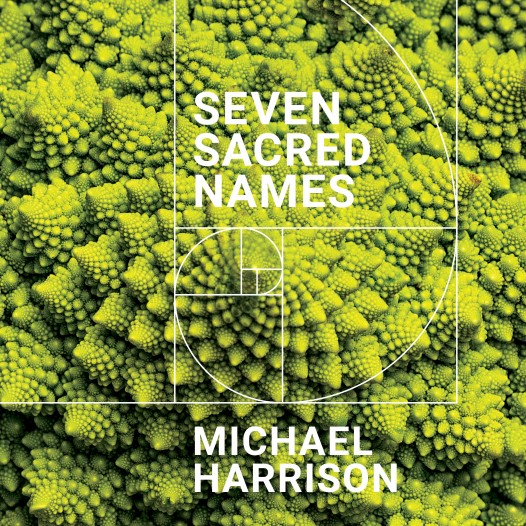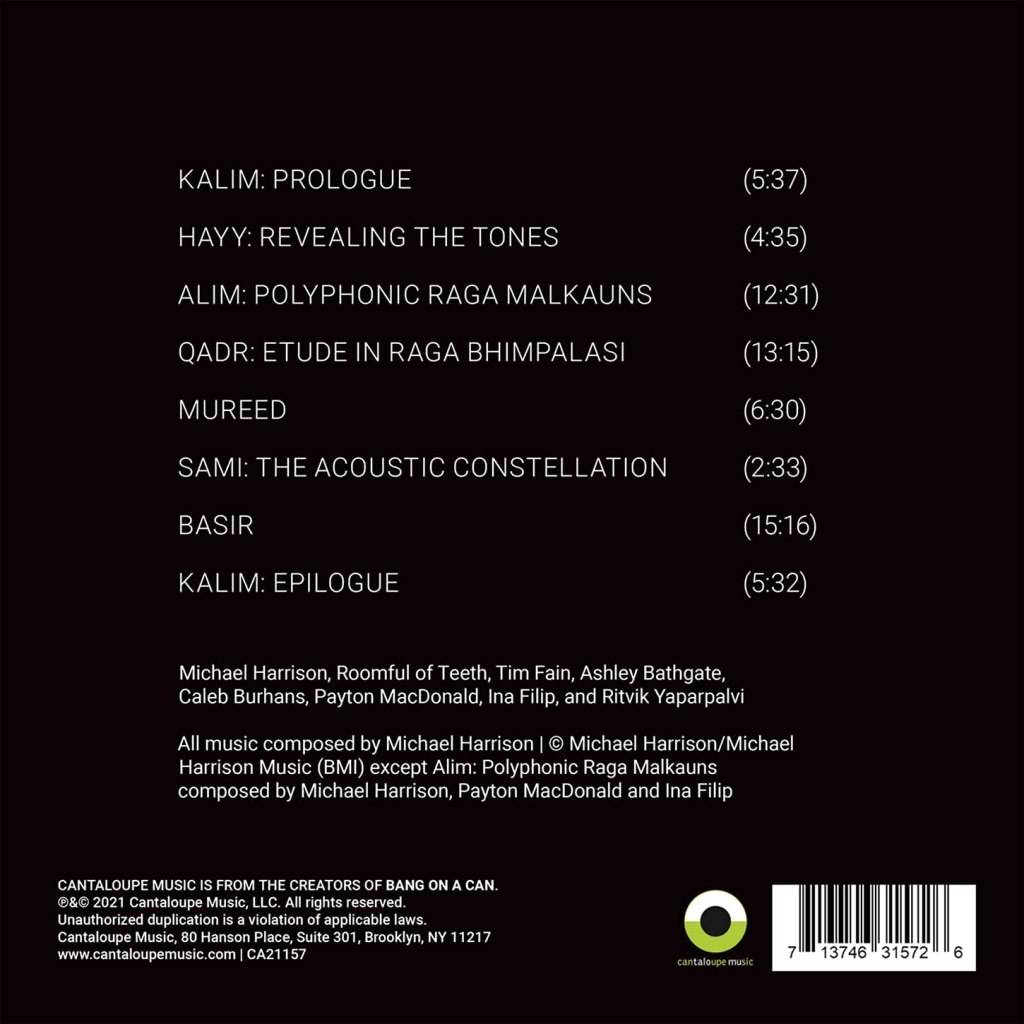
I first encountered the work of Michael Harrison (1958- ) while searching for Lou Harrison CDs. I came across the New Albion release, “From Ancient Worlds” (1992). It is a disc of short piano compositions played by the composer on an instrument of his own invention, The Harmonic Piano, which was conceived in 1979 and built by1986. Harrison was a student/apprentice of the Godfather of American Minimalism and Guru of non-western tunings, La Monte Young. He has also enjoyed a close relationship with yet another icon of contemporary music and non-western tunings, Terry Riley. Via these associations, Harrison has also studied with Pandit Pran Nath (famously a teacher of both Young and Riley) and Ustad Mashkoor Ali Khan.
He holds a B.M. in composition from the University of Oregon, and and M.M. in composition from the Manhattan School of Music where he studied with Reiko Füting. His collaborations put him in touch with progressive musicians on both the east and west coasts of the United States and he seems to derive a great deal of joy sharing his enthusiasm with many talented artists imparting his knowledge and learning from them as well.
Mr. Harrison’s major opus, “Revelation” (2002-7) for solo harmonic piano is a sort of manifesto or “urtext” and has been the source and inspiration for much of his subsequent work both directly and indirectly. At his 2009 appearance at the Other Minds Festival 14 he premiered “Tone Clouds” (2008) which incorporated a string quartet (Del Sol Quartet) along with the composer at the piano utilizing material from Revelation. Subsequent recordings with cellists Maya Beiser and Clarice Jensen further expanded his use of string instruments along with the piano.
So here we come to Harrison’s second release on Cantaloupe Records (his first was the Maya Beiser release in 2012) this time incorporating Tim Fain (violin), Caleb Burhans (viola), Ashley Bathgate (cello), Payton MacDonald (vocals), Ina Filip (vocals), Ritvik Yaparpalvi (tabla), and Roomful of Teeth, the Grammy winning vocal ensemble in a work which strikes this listener as a grand nearly symphonic effort reminiscent of Mahler’s Das Lied von der Erde. Also, like Mahler, the composer uses non-western (Sufi) texts and (unlike Mahler) non-western tunings derived in part from Hindustani and Carnatic influences, and from his studies with Pran Nath, Terry Riley, and Mashkoor Ali Khan.

The eight sections vary in style but have echoes of Arvo Part, Hindustani/Carnatic musics, minimalism, etc. all integrated into a large form neatly bookended by a prelude and epilogue. It is, in effect, a song cycle and, guess what? It’s about the earth, well, sort of. It is, according to the liner notes by W.H.S. Gebel, music which corresponds to the seven stages of universal awakening outlined in that author’s book, “Nature’s Hidden Dimension”. Maybe Mahler for the New Age?
Only the second movement, “Hayy: Revealing the Tones” derives directly from the aforementioned Revelation but it is clear that Harrison has integrated his diverse musical studies into a personal style descended from artistic and philosophical ancestors. The work struck this listener as being a successfully unified whole and a landmark in this composers still burgeoning career. This is grand and gorgeous music.